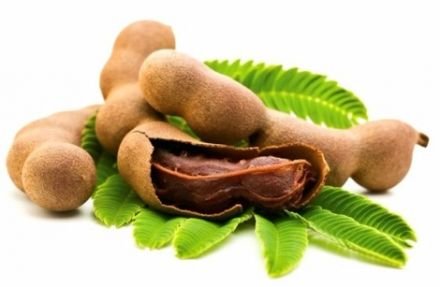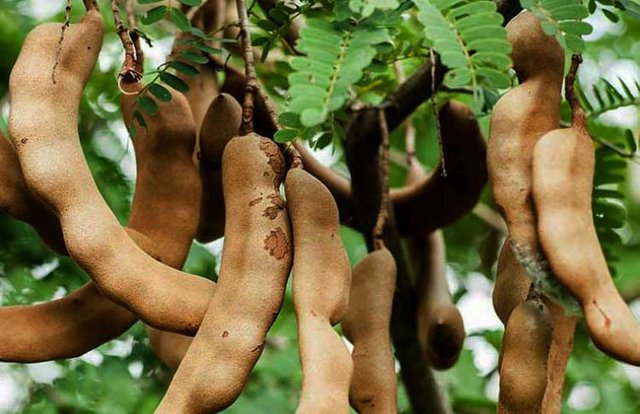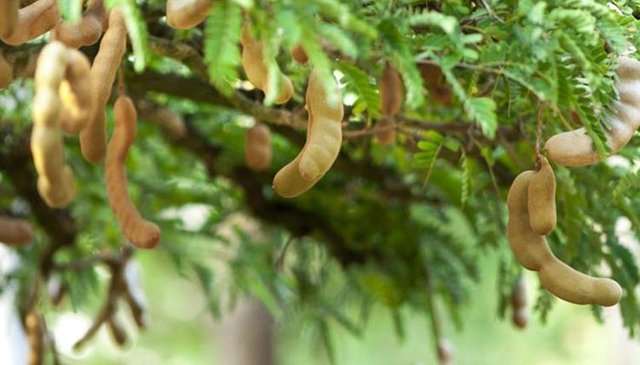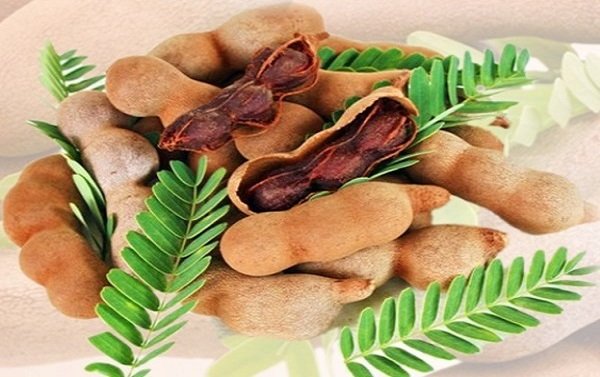Tamarind (তেতুল)
Tamarind (তেতুল)

Photo source
Tamarind (Tamarindus indica) is a leguminous tree in the family Fabaceae indigenous to tropical Africa. The class Tamarindus is a monotypic taxon, having just a solitary animal types.
The tamarind tree produces case like natural product, which contain a consumable mash that is utilized as a part of cooking styles the world over. Different employments of the mash incorporate customary solution and metal clean. The wood can be utilized for carpentry, and tamarind seed oil can be separated from the seeds. On account of the tamarind's numerous utilizations, development has spread far and wide in tropical and subtropical zones.
Etymology:

Photo source
The name gets from Arabic: تمر هندي, romanized tamar hindi, "Indian date". A few early medieval botanists and doctors composed tamar indi, medieval Latin utilize was tamarindus, and Marco Polo composed of tamarandi.[5]
In Colombia, Cuba, Dominican Republic, Mexico, Peru, Puerto Rico, Venezuela, Italy, Spain, and all through the Lusosphere, it is called tamarindo. In those nations usually used to make the refreshment of a similar name. In the Caribbean, tamarind is now and again called tamón.[6] Tamarind (Tamarindus indica) is once in a while mistaken for "Manila tamarind" (Pithecellobium dulce). While in the same ordered family Fabaceae, Manila tamarind is an alternate plant local to Mexico and referred to locally as guamúchili.
Origin:

Photo source
Tamarindus indica is presumably indigenous to tropical Africa, yet has been developed for so long on the Indian subcontinent that it is in some cases answered to be indigenous there, where it is known as imli in Hindi-Urdu. It develops wild in Africa in regions as differing as Sudan, Cameroon, Nigeria, and Tanzania. In Arabia, it is discovered developing wild in Oman, particularly Dhofar, where it develops on the ocean confronting slants of mountains. It achieved South Asia likely through human transportation and development a few thousand years BC. It is generally appropriated all through the tropical belt, from Africa to South Asia, northern Australia, and all through Oceania, Southeast Asia, Taiwan and China.
In the sixteenth century, it was acquainted with Mexico, and to a lesser degree to South America, by Spanish and Portuguese pilgrims, to the extent that it turned into a staple fixing in the district's cooking.
Today, India is the biggest maker of tamarind. The utilization of tamarind is far reaching because of its focal part in the foods of the Indian subcontinent, Southeast Asia, and the Americas, particularly Mexico.
Description:

Photograph source
The tamarind is a seemingly perpetual, medium-development tree, which achieves a most extreme crown tallness of 12 to 18 meters (39 to 59 ft). The crown has an unpredictable, vase-formed diagram of thick foliage. The tree develops well in full sun. It lean towards earth, topsoil, sandy, and acidic soil writes, with a high protection from dry season and vaporized salt (wind-borne salt as found in beach front regions).
The evergreen leaves are on the other hand organized and pinnately lobed. The pamphlets are splendid green, elliptic-ovular, pinnately veined, and under 5 cm (2.0 in) long. The branches hang from a solitary, focal trunk as the tree develops, and are frequently pruned in agribusiness to enhance tree thickness and simplicity of organic product gather. During the evening, the handouts quit for the day.
As a tropical animal categories, it is ice touchy. The pinnate leaves with inverse pamphlets give a surging impact in the breeze. Tamarind timberconsists of hard, dim red heartwood and gentler, yellowish sapwood.
The tamarind blooms (albeit subtly), with red and yellow extended blossoms. Blooms are 2.5 cm wide (one inch), five-petalled, borne in little racemes, and yellow with orange or red streaks. Buds are pink as the four sepals are pink and are lost when the blossom sprouts.
@gmalvi you were flagged by a worthless gang of trolls, so, I gave you an upvote to counteract it! Enjoy!!
Congratulations @gmalvi! You have completed the following achievement on Steemit and have been rewarded with new badge(s) :
Click on the badge to view your Board of Honor.
If you no longer want to receive notifications, reply to this comment with the word
STOPCongratulations @gmalvi! You have completed the following achievement on Steemit and have been rewarded with new badge(s) :
Click on the badge to view your Board of Honor.
If you no longer want to receive notifications, reply to this comment with the word
STOPCongratulations @gmalvi! You have completed the following achievement on the Steem blockchain and have been rewarded with new badge(s) :
Click on the badge to view your Board of Honor.
If you no longer want to receive notifications, reply to this comment with the word
STOPDo not miss the last post from @steemitboard:
Congratulations @gmalvi! You have completed the following achievement on the Steem blockchain and have been rewarded with new badge(s) :
Click here to view your Board of Honor
If you no longer want to receive notifications, reply to this comment with the word
STOPDo not miss the last post from @steemitboard:
Congratulations @gmalvi! You have completed the following achievement on the Steem blockchain and have been rewarded with new badge(s) :
Click here to view your Board of Honor
If you no longer want to receive notifications, reply to this comment with the word
STOPCongratulations @gmalvi! You received a personal award!
You can view your badges on your Steem Board and compare to others on the Steem Ranking
Vote for @Steemitboard as a witness to get one more award and increased upvotes!